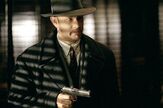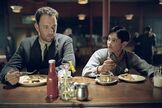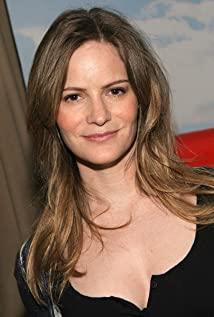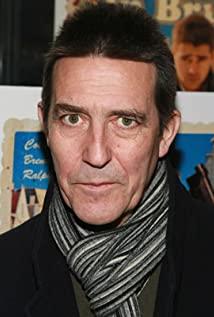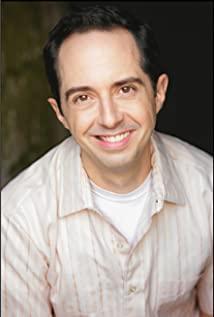This is a movie I've been looking forward to for a long time.
The golden triangle of two generations of film stars Paul Newman, Tom Hanks and heartthrob Judy Law was held in the hands of Mendes, who had directed "American Beauty". This is a group of masters who can turn corruption into magic. You only need 3 seconds to come to such a conclusion. The grievances and grievances of New York gangsters in the early 1930s, which they jointly deduced, will definitely affect me and you. It will be a hearty enjoyment and a wonderful memory. So I can't think of any reason why I shouldn't be eagerly looking forward to it.
But now, I am a little disappointed, like a fishbone stuck in my throat, uncomfortable.
The plain old-fashioned plot, coupled with the slow and procrastinating rhythm, is neither agitated nor ostentatious. Compared with classic gangster films such as "The Godfather" and "Pulp Fiction", "Road to Destruction" neither has a heavy sense of history, nor has a sharp rebellious idea, and it lacks a deeper excavation of human nature. To be precise, even if this film is an attempt to express two pairs (should be two and a half) father-son relationship and the ruthless blood of the gang through a fire within the gang, then its portrayal is not successful, because this portrayal is It is blunt and far-fetched, and this kind of bluntness and far-fetchedness is due to the paleness and thinness of the plot. 119 minutes were evenly divided into every cell of the whole event, which seemed to be low-climax and plain as water. In fact, if the focus of the story is on the confrontation between Tom Hanks and Paul Newman, and Judy Law, it will be a selling point, like Robert De Niro and Al Pacino in "The Wire" Confrontation, these powerful actors will turn it into another classic. It's a pity that such a scene has been taken lightly and turned into a stagnant pool of stagnant water.
The screenwriter should be a person without the slightest imagination and creativity, and several climax designs are expected and not out of the way. Take the end of the film as an example, when Hanks and his son ran to the cabin on the beach, behind the screen, I had expected that Judy Law, the killer, would definitely hide in the house and attack Hanks. , and Hanks will definitely fall under Judy's gun (there is no doubt about this, the literal meaning of the title alone has already indicated the end of the protagonist). When Hanks was dying and powerless to face Judy and his camera, I also expected a black muzzle to be aimed at Judy Law from behind, the gunman who could only It's Hanks' son Mike (since everyone else related to it is dead, just wondering where Mike's gun came from). Unfortunately, the above plots were all guessed right by the equally unimaginative me.
However, if you've paid close attention to the performances of Paul Newman, Tom Hanks and Judy Law, they won't disappoint you this time either. Compared to Paul Newman's sulky old-timer and Tom Hanks' lukewarmness, Judy Law's killer is definitely a bright spot. It should be said that his performance has made a big breakthrough compared to the past. In "The Genius Ripley", Judy Law is at best a vase to foil Matt Damon, and his performance in "Barrier on the City" can only be said It's mediocre. In this film, Judy interprets a crazy, evil, paranoid, and perverted killer to the core. In a scene in a fast food restaurant, his eyes conveyed a kind of dazzling and glamorous (strangely, there is a sense of glamorous) light, which made people shudder.
At the party, the duo of Paul Newman and Tom Hanks played the piano together, and they had the same heart. A rare highlight in the film.
The tone of the entire film is basically black and gray, and even the killing was carried out in the pouring rain, adhering to the consistent style of gangster movies. The soundtrack in the film is low, gloomy, soothing and long, which makes people feel a sense of the vicissitudes of the world and the feeling of being separated from the world. Part of the tone at the end suddenly changed, white sandy beach, surging ocean waves outside the window, dazzling sunlight, shining on the floor-to-ceiling windows, refracted into several white lights swaying in front of the camera, graceful figures, with a few dull gunshots, I know, that It is the protagonist who has fallen back into the endless darkness again.
View more about Road to Perdition reviews





